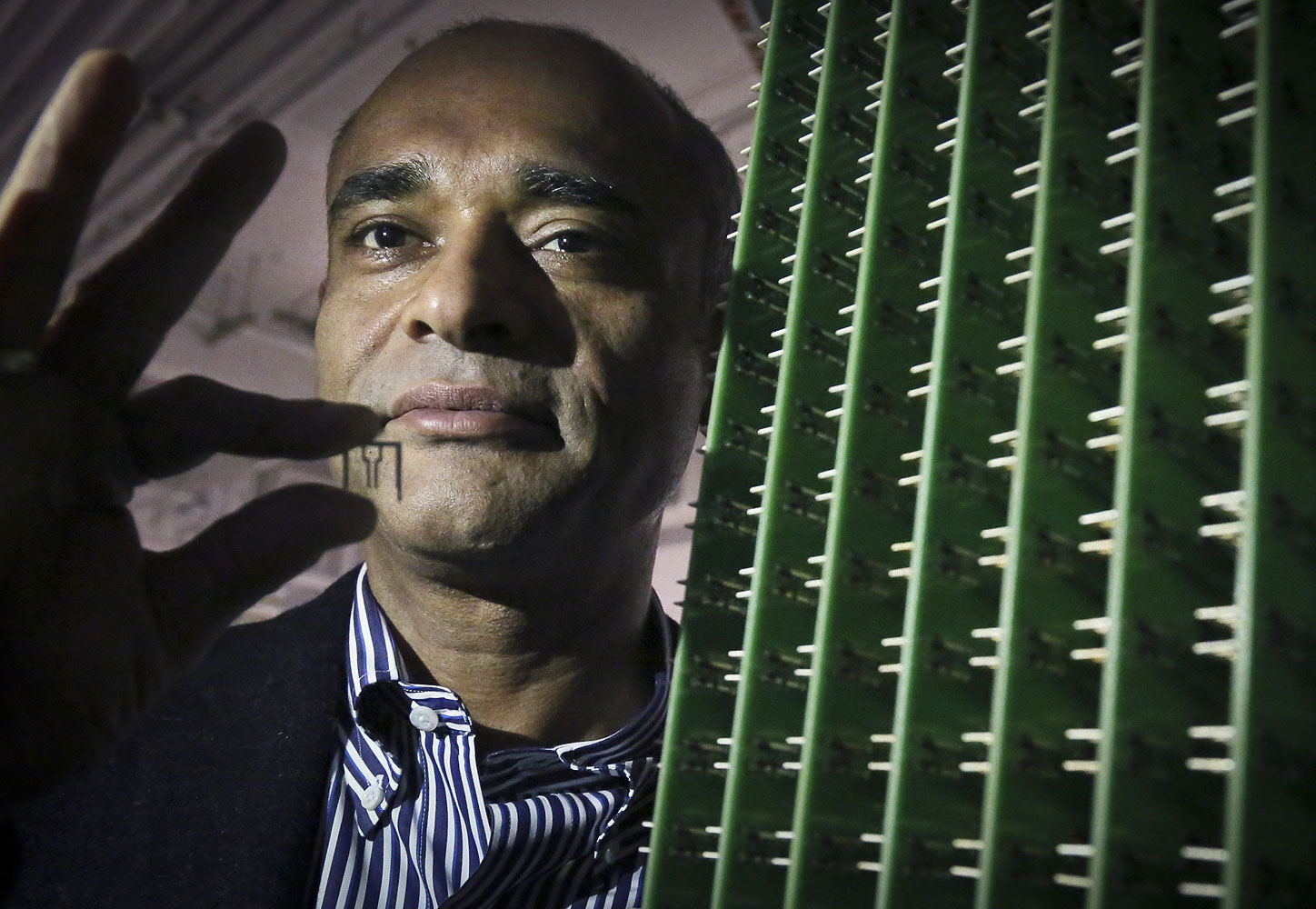
There was a lot of talk Tuesday at the Supreme Court about the future of television—how we will watch it, how we will pay for it, and whether, crucially, the old broadcast model will be blown up for good. While such rhetoric is usually overwrought, in this particular case—American Broadcasting Companies vs. Aereo—it’s actually justified. If the court decides in favor of Aereo, a small, Brooklyn-based TV-streaming tech startup, it could have the effect of destroying traditional broadcasters’ business model, and fundamentally reshaping the way the TV industry operates.
Aereo captures free, over-the-air TV signals with thousands of small antennas that are rented to individual users, and it transmits that content to customers online for a small monthly fee—without paying broadcasters the so-called retransmission fees cable companies pay them to provide their channels to cable customers. While Aereo founder Chet Kanojia has publicly tussled with the big broadcasters over whether such a disruption is good for consumers—Kanojia says it will free viewers from pricey cable bills but the big broadcasters disagree—the Supreme Court on Tuesday homed in on another question entirely. Namely, this one: If it’s legal for someone to put bunny ear antennae on his roof and watch TV for free, and it’s legal for him to record that free TV onto a DVR (or an old school Sony Betamax VCR, for that matter) so he can watch it again later with friends, then does it matter, from a legal perspective, whether he actually owns that antennae, or that he is in possession of a physical DVR?
The antennae farm across town and a “DVR” based in the cloud, Aereo argues, are legally no different from the old antenna and VCR.
ABC, backed by CBS, NBC, FOX, and the U.S. Justice Department, says: not so fast. They argue that by capturing copyrighted television programming and then transmitting it back to thousands, or tens of thousands, of users, Aereo is acting exactly like a cable company and should pay retransmission fees.
The justices didn’t offer much in the way of clues as to how they might rule during hour-long oral arguments Tuesday. A ruling is expected in the summer.
Aereo’s lawyer David C. Frederick insisted repeatedly Tuesday that the company does not “perform” anything; it is nothing more than an “equipment provider.” ABC’s lawyer, Paul D. Clement, scoffed at the idea. Of course Aereo is “performing,” he said; to suggest otherwise “is just crazy.” Clement argued that Aereo—by essentially plucking copyrighted material out of the sky, selling access to that copyrighted material back to subscribers, and refusing to pay copyright royalties—is attempting to “get something for nothing. … It’s like magic.”
The justices’ questioning returned repeatedly to the implications that any decision on this case will have for cloud computing as a whole. If an individual downloads a video onto the cloud using a popular application, like Dropbox or iCloud, and then accesses it later and watches it on his computer, then does that also amount to, as Justice Elena Kagan asked, “public performance?” Both Aereo and ABC appeared to agree that an individual user of the cloud should not be required to pay royalties when he watches, say, an episode of The Sopranos that he has already purchased.
Clement urged the justices not to try not to “solve the problem of the cloud once and for all” in this one case. He instead attempted to steer the discussion toward what he characterized as a common sense interpretation of copyright law.
Frederick, by contrast, relished the cloud debate, warning the justices that if they decide in favor of the big broadcasters, they run the risk of fundamentally undermining the business model of the cloud. “If you turn every playback into a ‘public performance,’” he said, that will have “huge implications” for cloud-based businesses.
“The court’s decision today will have significant consequences for cloud computing,” Frederick said in a statement following oral arguments. “We’re confident, cautiously optimistic, based on the way the hearing went today that the Court understood that a person watching over-the-air broadcast television in his or her home is engaging in a private performance and not a public performance that would implicate the Copyright Act.”
More Must-Reads from TIME
- Cybersecurity Experts Are Sounding the Alarm on DOGE
- Meet the 2025 Women of the Year
- The Harsh Truth About Disability Inclusion
- Why Do More Young Adults Have Cancer?
- Colman Domingo Leads With Radical Love
- How to Get Better at Doing Things Alone
- Michelle Zauner Stares Down the Darkness
Write to Haley Sweetland Edwards at haley.edwards@time.com